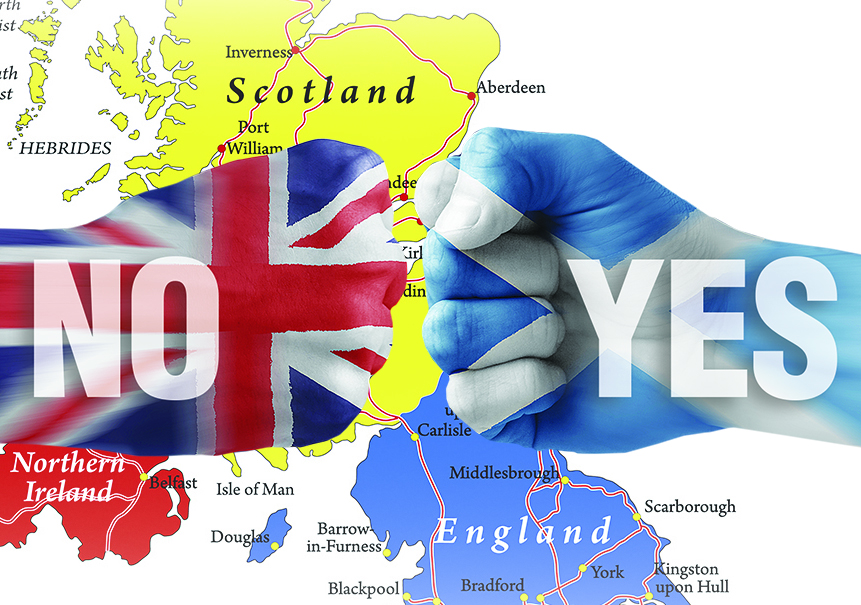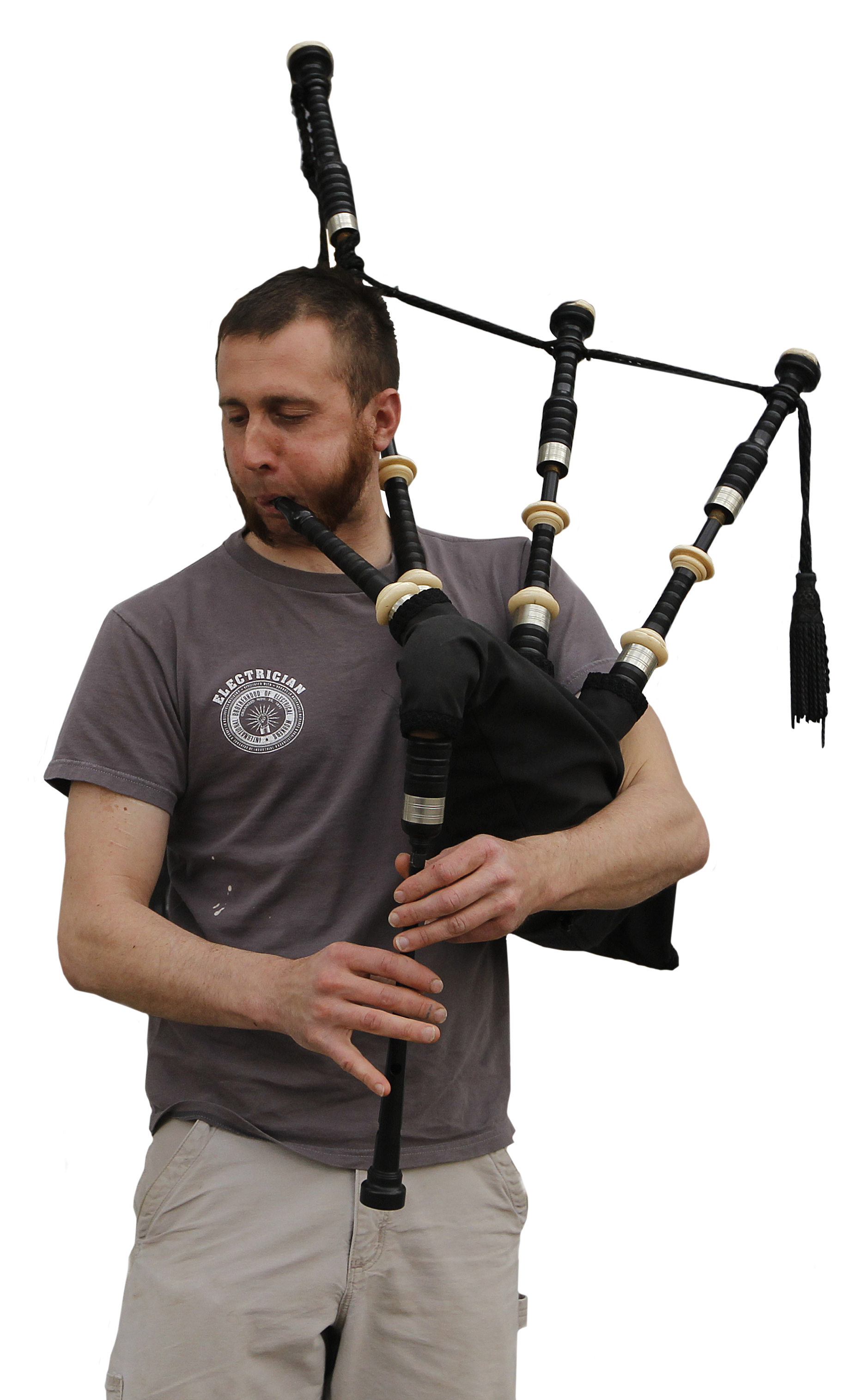READ MOREBritish celebrities take sides on independence
DISMANTLING THE EMPIREIf Scotland votes to cede from the United Kingdom on Thursday, it will be the latest in a long line of former British nations to become independent. Here are a few that blazed the trail to self-governance:• United States of America (1776)• Egypt (1922)• Republic of Ireland (1922)• Nigeria (1960)• South Africa (1961)• People's Democratic Republic of Yemen (1967)• Fiji (1970)• The United Arab Emirates (1971)• The Bahamas (1973)• Canada (1982)• Australia (1986)• New Zealand (1986)
On July 4, 1776, American colonists made the historic decision to declare their independence from Great Britain. In a 200-year-old echo of that resolution, the people of Scotland will vote Thursday on a referendum to decide whether their country will follow suit in severing its membership with the U.K.
If the majority of the more than 4-million-strong Scottish electorate vote "yes" to the Scottish Independence Referendum Bill, negotiations will begin to establish an independent Scotland for the first time since it was joined with England in 1707.
Even though 4,000 miles and generations separate the U.S. from Scotland, interest in the outcome of Thursday's vote remains strong near Chattanooga, where many families claim Scottish heritage. At 7.9 and 7 percent, respectively, Signal Mountain and Lookout Mountain have some of the highest concentrations of Scottish descendents in the country, according to the self-reported ancestral histories collected during the 2000 U.S. Census, the most recent census to collect such data.
And like native Scots -- whom polls show to be almost evenly divided on the referendum -- local albaphiles (the technical term for those fascinated with all things Scottish) are split on whether independence is a wise or rash decision.
"We can say with some assurance that the consequences of devolution for both Scotland and England will be profound and historic," says Kittrell Rushing, a recently retired professor at the University of Tennessee at Chattanooga who once taught courses on the history and culture of Scotland.
During a visit to Scotland last year, Rushing spoke with many residents about the referendum. Based on those discussions and his familiarity with the history of the United Kingdom, he says he understands the sentiment of many older, educated Scots who describe Scottish independence as "impractical and unwise."
"I believe a strong case exists to support the argument that both nations need one another," he says. "They've fought wars together ... [and] the two have been an effective team in business, commerce, industry, as well as in the arts. I believe that history shows, in spite of their problems and differences, overall, England and Scotland made a good team."
David Cameron, prime minster of the U.K. -- which includes England, Scotland, Northern Ireland and Wales -- feels similarly impassioned about the worth of a unified Britain. On Sept. 10, he wrote a statement to The Daily Mail newspaper, pleading with Scots to vote 'No' to the referendum.
"The [U.K.] is a precious and special country," Cameron says. "That is what is at stake. So let no one in Scotland be in any doubt: we desperately want you to stay; we do not want this family of nations to be ripped apart.
"This is not a decision about the next five years. This is a decision about the next century."
Despite failed referendums to split the two countries in 1979 and 1997, the U.K. is paying particularly close attention to this latest push after polls suggest opinions in Scotland were shifting in favor of independence. On Sept. 7, a survey conducted for The Sunday Times newspaper showed that 51 percent of Scots favor severing ties with the U.K., thereby gaining more control over how their country is run, economically and politically.
Chattanooga bagpiper Chris Armstrong, 31, can trace his family's Scottish ties back to his clan's ancestral home in the borderlands between Scotland and England. For his part, he says an independent Scotland would likely receive "a bit more respect" during the Highland Games events throughout the Southeast at which he and the other members of the City of Chattanooga Pipe Band perform.
During the opening ceremonies at the games, Armstrong says, it's customary for musicians to stand at attention during recitation of the national anthems of the United States, the U.K. and Canada. When the Scottish national anthem, "The Flower of Scotland," is performed, however, they don't salute because "Scotland isn't an official country," he says.
That kind of disregard for Scottish cultural identity just serves to fan the flame of independent fervor, he says.
"I think it's definitely a good thing for them to be independent," Armstrong says. "I really think that the U.K. has really held too many countries in bondage for too long, and I think it's high time for a change."
If the referendum is passed and Scotland does achieve independence, Chattanoogan Dora Robertson, 26, says it will be a decision that is "long overdue."
Robertson says her father's family line were "almost entirely Scottish Highlander[s]" who were forced to leave their holdings during the forced relocation of the residents of Northern Scotland in the 18th and 19th centuries. Knowing that history, she says, has powerfully motivated her desire to see Scotland sever its ties to the U.K.
"I may not be a Scottish citizen, but I'm a Scottish Highlander by blood, and I feel a need to support Scotland's fight for independence," she says. "It will greatly impact my life knowing that the nation my family had to flee from because of England's attempts at cultural genocide will finally be able to call its own shots."
Since 2007, Robertson says, she has been an active stateside supporter of the Scottish National Party, the majority leaders in the Scottish Parliament and the primary torchbearers for the move toward independence.
Even among Americans who don't have direct familial ties to Scotland, Thursday's referendum should resonate for historical reasons, if nothing else, she says.
"We're a nation of immigrants; our families all came from somewhere," she says. "It's important to care about where we came from and have a sense of cultural identity. Perhaps Scotland gaining independence could make others in America care more about what's going on in the nations their family originally comes from."
Contact Casey Phillips at cphillips@timesfreepress.com or 423-757-6205. Follow him on Twitter at @PhillipsCTFP.


